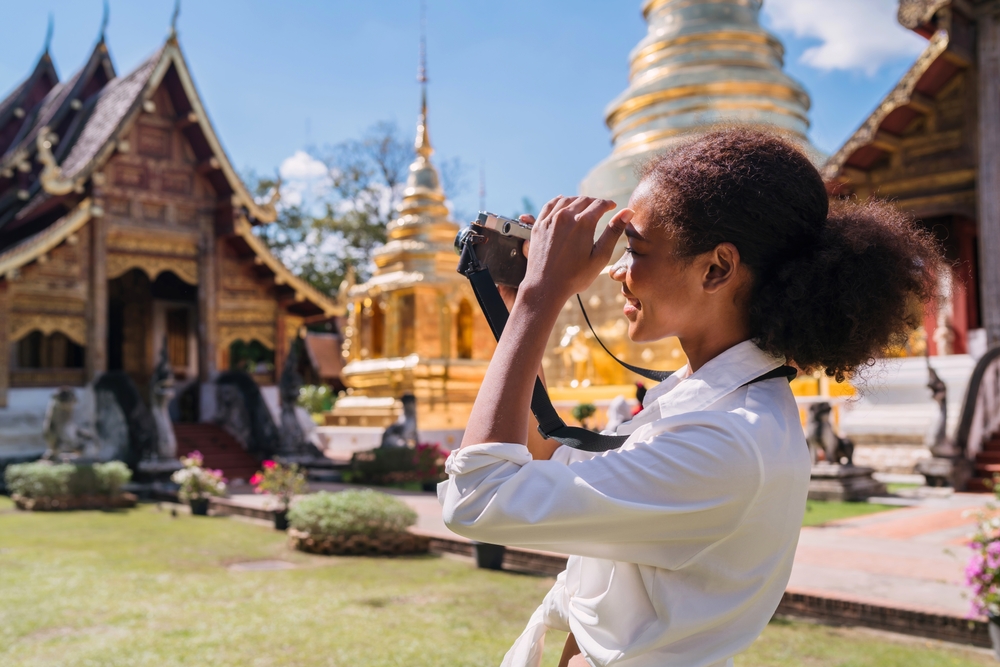Solo travel does more than fill your passport with stamps. It fundamentally rewires your brain, enhancing problem-solving abilities, emotional resilience and creative thinking. Whether you’re exploring a neighboring city or venturing across continents, traveling alone triggers profound neurological changes that last long after you return home.
Your brain thrives on solo adventures
The human brain craves novelty, and solo travel delivers it in abundance. When you navigate unfamiliar territories without the comfort of companions, your brain enters overdrive. Every new street, foreign phrase and cultural encounter stimulates neuroplasticity – your brain’s ability to form fresh neural pathways.
Without familiar faces to lean on, simple tasks become brain-training exercises. Decoding public transit maps, ordering meals in broken phrases and finding your hotel in winding streets all forge new connections between neurons. Your mind literally becomes more agile with each challenge you conquer alone.
These neurological benefits compound quickly. Regular solo travelers often report feeling mentally sharper, more adaptable and better equipped to handle unexpected situations in all areas of life.
Building unshakeable confidence through independence
Every solo journey transforms you into your own problem-solver. From booking accommodations to navigating language barriers, each decision strengthens your prefrontal cortex – the brain’s command center for planning and decision-making.
Real confidence emerges from these moments:
- Finding your way after getting completely lost
- Handling unexpected changes without panic
- Making quick decisions without second-guessing
- Trusting your instincts in unfamiliar situations
This repeated practice of autonomous decision-making creates lasting neural patterns. You return home with more than memories – you carry an upgraded ability to trust yourself and handle whatever life throws your way.
Mastering emotions without a safety net
Solo travel serves up a full spectrum of emotions, from euphoria to anxiety, often within the same day. Managing these feelings alone strengthens your emotional regulation skills in ways group travel never could.
When plans fall apart – missed connections, communication failures, unexpected closures – you can’t turn to a companion for comfort. Instead, your amygdala and insula (emotion-processing brain regions) learn to respond more calmly to stress. This training effect persists long after your trip ends.
Many solo travelers discover they handle workplace stress, relationship challenges and daily frustrations with greater composure after returning home. The brain remembers how you navigated foreign crises and applies those lessons to familiar problems.
Creativity flourishes in unfamiliar territory
Exposure to different cultures and perspectives acts like fertilizer for creative thinking. When you travel alone, you absorb these experiences more deeply without the filter of shared commentary. Your brain processes new information differently when it’s not immediately discussing it with others.
Solo travel enhances divergent thinking through:
- Observing how other cultures solve common problems
- Breaking free from familiar thought patterns
- Creating space for reflection and new ideas
- Connecting seemingly unrelated concepts
Artists, writers and entrepreneurs often credit solo journeys with breakthrough moments. The combination of solitude, novelty and cultural immersion creates ideal conditions for innovative thinking.
Developing deeper empathy through outsider experiences
Navigating foreign environments alone places you firmly in the outsider role. This perspective shift strengthens mirror neurons – the brain cells responsible for understanding others’ experiences and emotions.
Without travel companions, you’re more likely to engage with locals and fellow travelers. These spontaneous connections teach invaluable lessons about human diversity and commonality. You learn to communicate beyond language barriers, read non-verbal cues more accurately and appreciate different worldviews.
Solo travelers often return with enhanced emotional intelligence and stronger cross-cultural communication skills. These abilities prove invaluable in our increasingly connected world.
Mindfulness becomes second nature
Traveling alone naturally cultivates present-moment awareness. Without someone to share constant commentary, you become more attuned to your surroundings. The sunset you watch alone, the coffee you savor in silence – these moments activate your brain’s default mode network, enhancing self-awareness and introspection.
This practiced mindfulness delivers measurable benefits:
- Reduced stress hormone levels
- Improved focus and attention
- Greater emotional balance
- Enhanced appreciation for simple pleasures
Many solo travelers maintain these mindfulness habits long after returning home, fundamentally changing how they experience daily life.
Mental resilience through embracing discomfort
Solo travel builds mental toughness by exposing you to manageable doses of discomfort. Culture shock, loneliness and uncertainty all challenge your brain to adapt and grow stronger. This process improves cognitive control – your ability to maintain focus and flexibility when facing difficulties.
Even seemingly empty moments – long train rides, airport delays, quiet evenings – teach valuable lessons. Your brain learns to find peace without constant stimulation or social validation. You discover that solitude can be strength, not weakness.
These resilience-building experiences create lasting changes in how your brain responds to challenges. Former solo travelers often report feeling more capable of handling life’s uncertainties with grace and confidence.
Transformative effects that last a lifetime
The neurological benefits of solo travel extend far beyond your return flight. Your brain carries forward enhanced plasticity, stronger emotional regulation, deeper empathy and improved creative thinking. These changes influence how you approach relationships, work challenges and personal growth.
Each solo adventure offers another opportunity for neural growth and self-discovery. The brain you bring home is literally different from the one that departed – more flexible, resilient and capable.
Solo travel isn’t just about seeing the world differently. It’s about fundamentally changing the brain that perceives it. Every step taken alone is a step toward a stronger, more adaptable mind. The journey changes you from the inside out, one neural pathway at a time.












